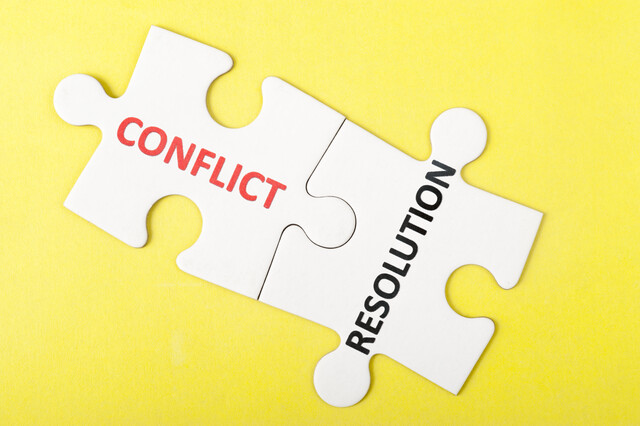The business world is heavily diverse, even if it doesn't feel like it in the corner of that world that you currently occupy. That world is massive, and it spans throughout the globe. Local markets are attached to national and international markets via products, manufacturers, sellers, business owners, and customers. Everything you interact with on a professional level quite possibly is connected to that global business world in some way.
This internationality isn't just localized to the actions and operations of a business, but can also be found in the business' internal environment: the workplace. It's the operational heart of a busin ess and, in some cases, it can be the most diverse part of a business or company. Those in the workplace can come from varied backgrounds-aspects of age, gender, culture, religion, race, language, education, etc.-that influence their actions and the overall performance of the business. The stability and psychological health of an international workplace and everyone in it is therefore crucial for success.
In this article, the aspects of a respectful international workplace and what their role is will be explored. Topics will include elements of professionalism, inclusion, and respect, as well as their impact on the psychological state of a workplace on local and international levels.
What Is A Respectful International Workplace?
A workplace or environment that is considered to be respectful in the way that this course discusses is one that encourages respect, diversity, and fairness amongst everyone present.1 Basically, the workplace should be a place where people are treated as human beings and aspects of identity-their gender, age, race, sexual orientation, religious belief, etc.-have no bearing on how they are treated in relation to others. This isn't just in regards to the treatment of the employees, but the treatment of those in management, the clientele and customer base, collaborators, and more-or-less anyone the business interacts with. Even with peers within those groups, that treatment should remain respectful and not waiver unnecessarily based on who's involved.
What's Involved?
As stated, most people only touch on the tip of the iceberg when they think of what it means to have a respectful workplace. There are any number of factors involved that determine how it manifests and how it impacts those present, including things such as industry, business size, location, and workforce demographics. This is why the tone and atmosphere in a working environment can vary from business to business. In many cases the varying factors can be helpful in creating a truly respectful international workplace that fits the needs for that particular business. After all, if diversity is the variety of different elements-including people-in an organization or group then it doesn't make much sense for it to be identical from place to place.3
While every workplace will vary in regards to what makes it a respectful and healthy environment, there are some elements that should remain constant. To some degree, these elements are expected to be included in the business world as a part of professional conduct. However, that does not mean that that is the only reason why they should be included. For a truly respectful international workplace, these elements should be encouraged and fostered to a healthy level within the business environment.
Professionalism-By definition, professionalism is the conduct and behavior of individuals in a professional environment that is appropriate for said environment.4 It's a basic component of the workplace and is one that will be determined by the profession or industry of the workplace, e.g. teaching/academics or engineering. Thus, it is to be expected that it would be an element in a respectful international workplace. Professionalism can be broken down into further components, each with their own requirements and elements. These can include attitude, work attire (including things like uniforms), language (e.g. no swearing, slang, etc.), work-life boundaries, accountability (i.e. taking responsibility for your actions), and peer interaction.5
Workplace Health-The concept of workplace health is one that gets tossed around in the business and professional worlds without much explanation as to what it is and what it means. Workplace or occupational health usually refers to elements of health and safety that exist in a workplace, usually with the intent of ensuring that those elements are positive and to the benefit of those in the workplace.8 This applies to everyone in the workplace: employees/workers, management staff, employers, customers/clientele, and agents from outside of the workplace like inspectors or emergency personnel. In regards towards respectful international workplaces, workplace health is a major component for success. Workplace health should include psychological and emotional health in addition to physical health, as a person's well-being is likely to be dependent on all three.9 Later articles will further explore this concept and the role it plays in a respectful international workplace.
Inclusion-Inclusion is, quite simply, including something/someone or being included in something.10 By that definition it is rather straight forward, but it actually covers quite a bit when it is actually applied as a practice in a particular environment, like the workplace. Inclusion is most often used in education in regards to students with special needs and disabilities to allow them to participate and learn alongside their peers in the classroom.11 However, it can be applied to allow anyone who does not match what is considered "normal" in a particular environment to be able to be involved without restriction or unfair disadvantage. In the workplace, this usually means that the diversity of the workplace is taken into consideration when it comes to decisions and actions so as to not exclude or cause unnecessary hardship for anyone involved. This may pose some difficulty-especially when it comes to a large and heavily diverse group-but it isn't seen as a bad thing unless it's poorly handled. Diversity and inclusionary practices have increased in the professional world with positive results, and have prompted a rise in innovation that has allowed it to be implemented with more ease and with wide-spread positive results.12
R-E-S-P-E-C-T: Encouraging Respect At Work
Nothing discussed thus far in this article will work or be effective if there isn't respect in the workplace. After all, it is the point of a respectful international workplace, isn't it? It's actually a necessary component for any workplace to properly function, especially seeing as it has been tied to things such as job satisfaction, employee engagement, lower stress levels, and successful peer collaboration and communication.14 That doesn't include the secondary or tertiary benefits that those benefits generate, such as improved workplace healthy/safety and productivity.15
So if respect is so important and so beneficial, then how come it isn't standard everywhere you go? The simple answer is that some people are jerks and you're likely to find them wherever you go. It's a pessimistic thought, but it's a fact of life-albeit an unfortunate one. However, that does not mean that there is nothing that can be done to encourage and foster respect in the workplace or wherever else it may be needed in your life. In such a diverse world, respect has become a necessary component that allows for everything to continue running smoothly and without issue. Even though the world is not without issues, respect has helped when it is used effectively.
In order for respect to have a successful impact on the workplace, it needs to be present. Encouraging respect often works best through action and behavior; most will adhere to the tone of an environment once it has been established, so respect cannot be encouraged and foster if it is not there to begin with. Some ways that respect can be encouraged in the workplace include:
Treatment of Others-A lot of people adhere to the concept of the "Golden Rule", which can be summarized as "treat others as you would want them to treat you."16 How a person is treated in any given situation often sets the overall tone for any interactions. It's safe to say that if you are hostile towards someone that they will likely respond in kind. Treating someone with kindness and respect from the start will often prompt them to treat you with kindness and respect, or at least in a manner that is appropriate for the workplace.17 While it may not be 100% fool-proof, being mindful of your treatment of others will at least help set the tone and prevent situations from escalating in a negative or unhealthy manner.
Be Clear-Clarity in the workplace often helps prevent problems from arising, and it can help ensure that the respect that already exists in the workplace remains. Being clear with things like expectations, communications, and requirements can help prevent misunderstandings and errors, which may impact the respect between those involved.18 For example, if someone makes a mistake based on information given to them by someone else-and that information was somehow unclear-then blame may be tossed around and respect lost between those two individuals. This can lead to conflict and other issues, especially in serious instances (e.g. information impacted safety, productivity, etc.).
Accountability-Especially for those in positions of leadership, accountability is a major means of encouraging respect. Being accountable for your actions-or taking responsibility for the things you do-often shows others that you are willing to take charge the outcome of those actions, regardless of if they are positive or negative. For many, accountability is an admirable trait that shows that a person can be trusted and is worthy of respect from others.

























